Covid-19: Over 1,300 bankers dead
With over 1,300 deaths and rising Covid infections, a fear psychosis is gripping the banking fraternity. Even the life of a bank clerk who is blind has changed. Forever.
With over 1,300 deaths and rising Covid infections, a fear psychosis is gripping the banking fraternity. Even the life of a bank clerk who is blind has changed. Forever.
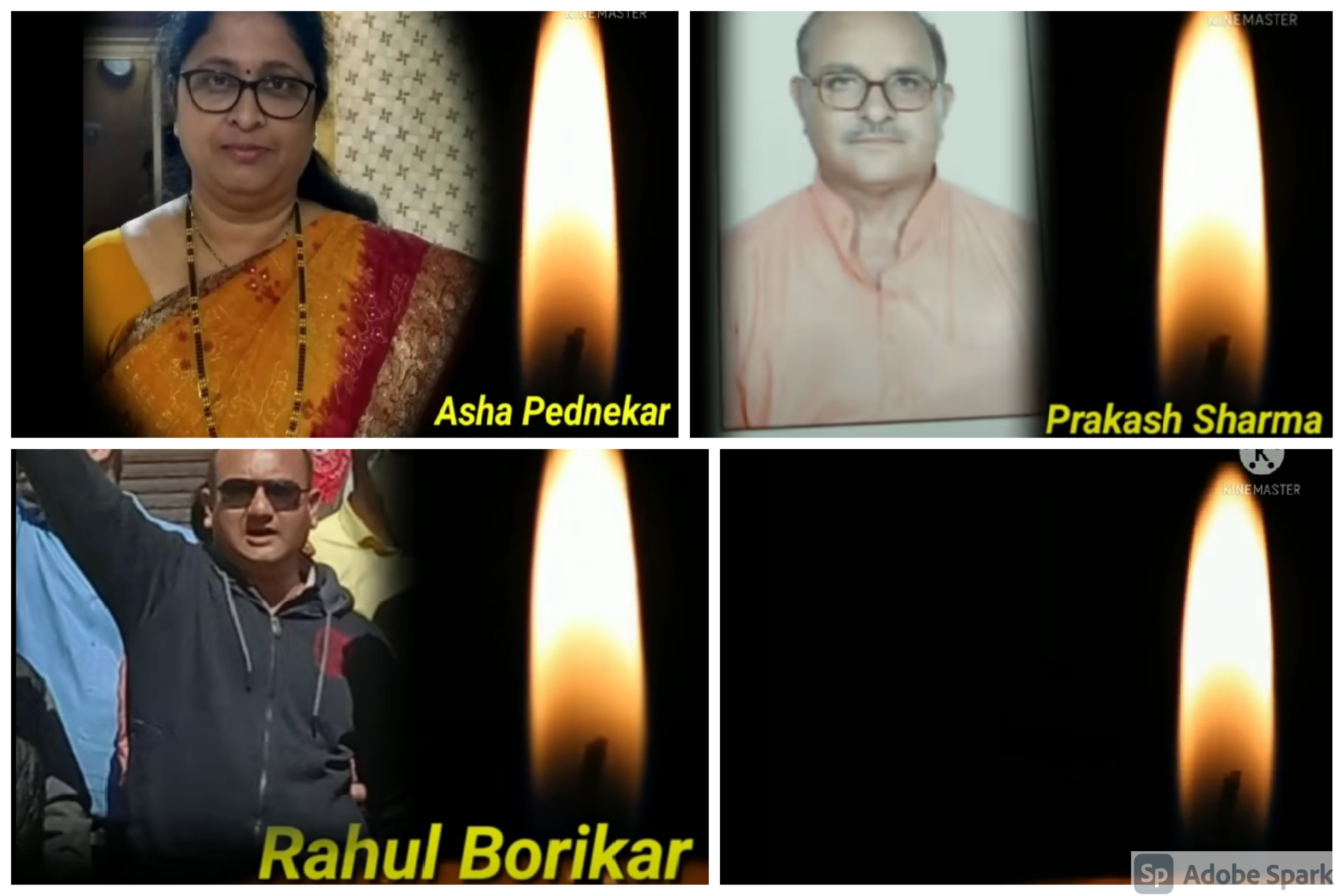
Samiran Majhi, a middle-aged bank manager, sent out a desperate message for a hospital bed with oxygen facility to his colleagues at Indian Bank in a WhatsApp group.
Written in the afternoon, the heart-breaking S.O.S. read like this: “Today, due to suffering from corona, my medical situation got worse. I am in urgent need of oxygen. We went to lots of private hospitals, but no bed with oxygen facility is available. So I was admitted to the medical college at Rajnandgaon. It will be a big help if you get me shifted to a private hospital with oxygen facilities and ICU.”
Majhi wouldn’t get to write again. His breathing problems worsened the same night and in the wee hours of April 8, he gave up the struggle. He died of Covid-19, leaving behind his 28-year-old wife who was planning to celebrate their third marriage anniversary 11 days later.
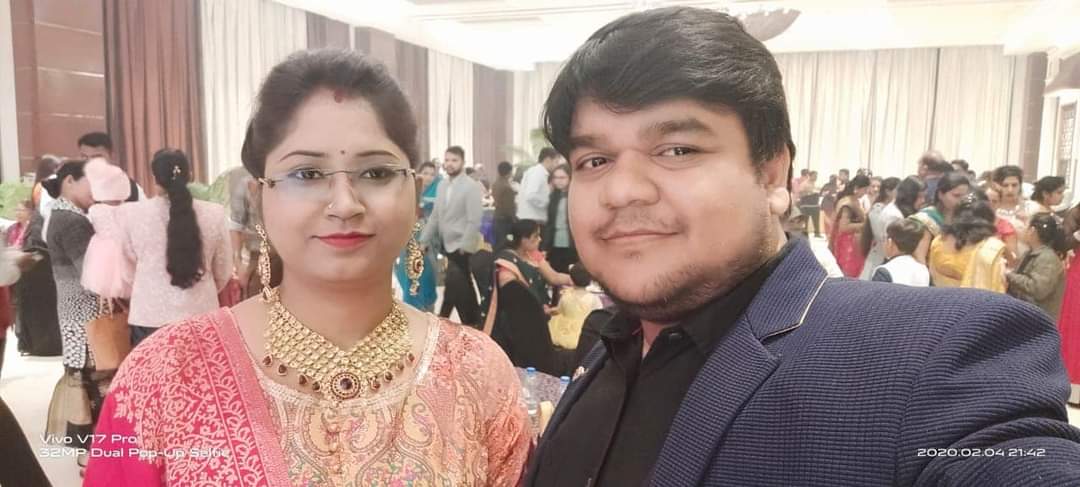
“We dreamt of so many things together. It’s all over now,” says Promila Majhi, breaking down in muffled sobs.
One of those dreams was to have their first child after Samiran got an urban posting. “Let my posting in Damoh get over. There is no good medical facility here. We will have our child born in an urban city,” Promila recalls her husband telling her so many times.
A dream that Promila will, however, keep pursuing is taking the civil services. “I was preparing for civil services and he was very encouraging. I will never give up that ambition as we used to dream about it together,” she says.
On that fatal night, they conversed till 10 pm. As she was also tested Covid positive, she could be beside him till the end. “He woke up at around 1.30 am and said he couldn’t breathe. I went to call the doctor. They checked the oxygen supply but he continued to say that he was not able to breathe. He couldn’t fight it out anymore,” she mumbles, and falls silent.
Less than three weeks later, two senior officers in the same bank died. The coronavirus did not distinguish between a remote area and an urban city. While Majhi was posted in Madhya Pradesh’s Damoh village bordering Chhattisgarh, zonal general manager Manoj Kumar Bajpai and his deputy Hemant Vora were posted in Bhopal.
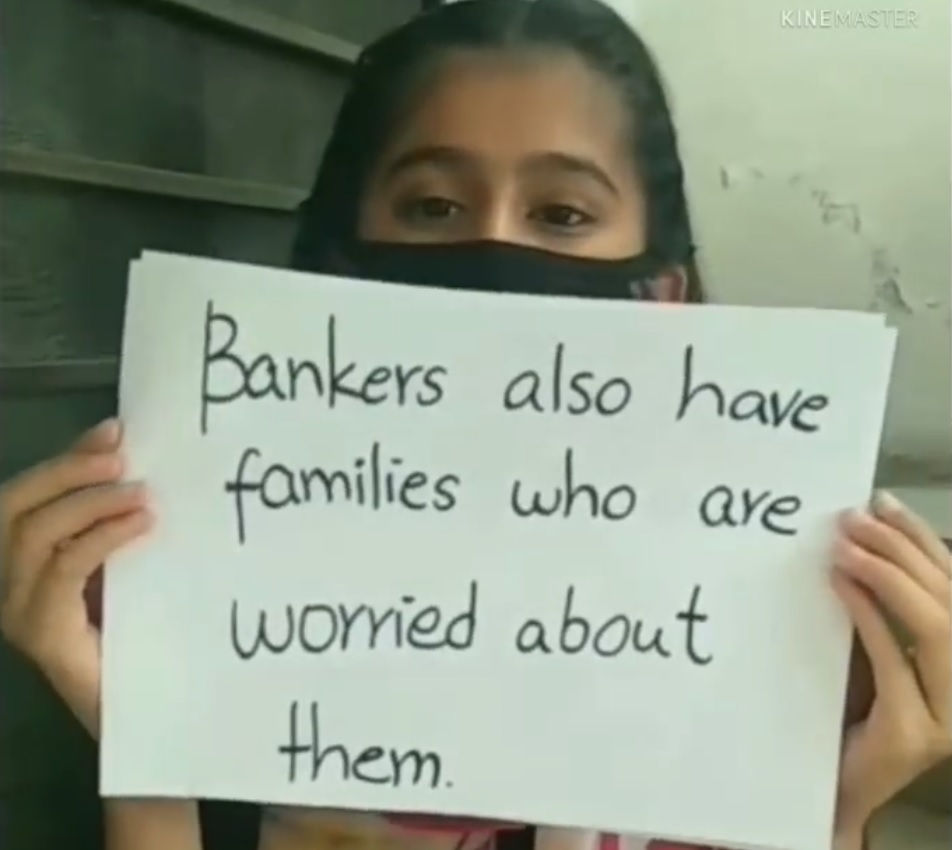
In the Covid-19 cave, more than 1,300 bank employees are estimated to have lost their lives and there seems to be no end in sight to the spike. The Indian Banks’ Association (IBA), an industry body, put the number of deaths at 600 until 31 December 2020, but the count has not been updated after that. In a letter to the finance ministry, the IBA stated from data that the percentage of death in the banking industry in proportion to the staff population is higher than that of the entire country.
Total deaths due to Covid Population % Age
Banking Industry 600 13,50,000 0.04
Country 153, 000 130,00,00,000 0.01
Source: IBA
Data till 31 Dec, 2020
Though no official figure is available, estimates put the number of deaths of bankers at over 700 since the second Covid wave, which is turning out to be more infectious and fatal amid a deadly shortage of hospital beds, oxygen cylinders and plasma donors.
“I haven’t seen anything like this before,” said a 53-year-old bank official. “So many people are dying everywhere because there is just no oxygen. Hospital beds are full, families are dislocated and tragic tales are spreading as countless bodies keep burning in funeral pyres.”
The situation is alarming and getting more helpless as India continues to report record new infections and deaths. Since April, the new cases have gone up by five times from 80,000 to four lakh a day while the number of daily deaths has increased almost 10 times from 400 to 4,000. For the week ended 8 May, the average new Covid cases stood at 3,91,232 while deaths were at 3,829. On 8 May, there were 4,03,405 new cases and 4,077 new deaths. India’s total number of cases is now at 2.3 crore and the death count has touched 2.5 lakh.
“In Union Bank of India where I work, there are more than 60 deaths across the country in the last 45 days,” said Sreenath Induchoodan, general secretary of the Kerala unit of the All India Bank Officers’ Confederation (AIBOC).IBIMG_0 The death spots are across the country but more in the northern and western belts. “We are seeing more deaths coming from Uttar Pradesh, Maharashtra, Madhya Pradesh, Gujarat and now Bihar. The southern states are less fatal, but even here the numbers are beginning to rise from Karnataka and Andhra Pradesh,” said a senior officer who did not want his name to be revealed.
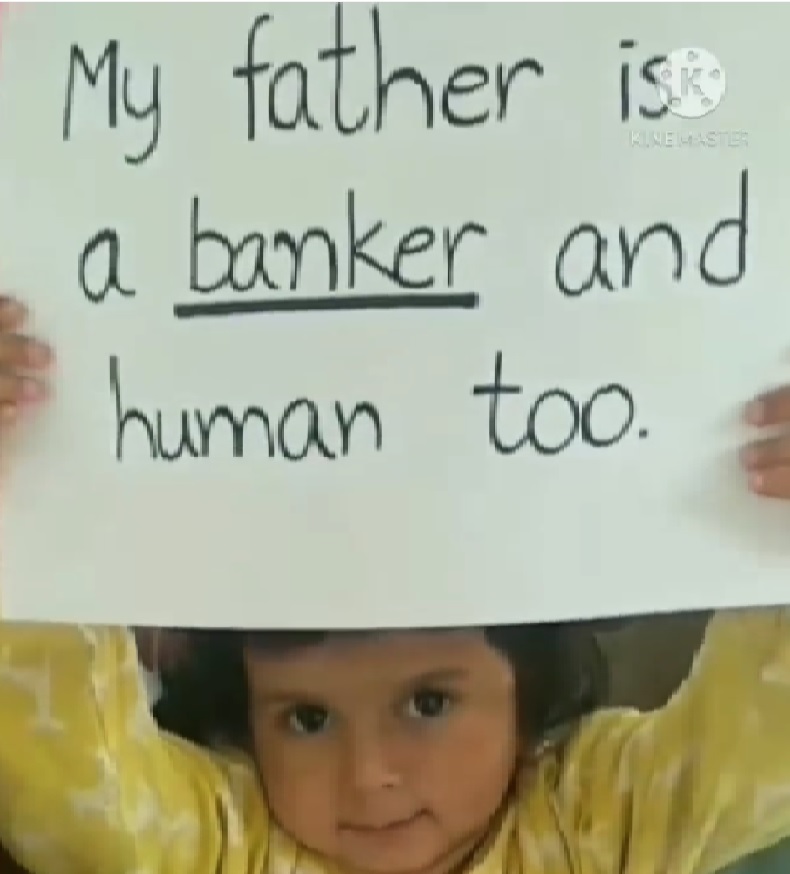
The new wave is not sparing even the young staff. Hanindra Urmal, aged 28, died a few days back before he could be airlifted to a better hospital in Bhubaneswar, the capital city of Odisha. He had joined the State Bank of India (SBI) as junior associate three years back and was working in the Jharsuguda branch in western Odisha.
“Ten SBI officials have died of Covid in Odisha. As the cases are rising in the state, it is becoming difficult to arrange hospital beds for the infected,” said general secretary of the Odisha unit of AIBOC Sabyasachi Swain.
While the coronavirus has invaded corporate offices of banks, it is more visible among the bank staff who are working in the field or the branches as they come into direct contact with customers. Worse, the virus has spread to rural areas, where around 30% of banks in India reside.
Prakash Chandra Sharma, a cashier at the Bank of Maharashtra’s Sehore branch in Madhya Pradesh, got Covid, had his lungs damaged and was put in a ventilator but could not be rescued. His eldest 34-year-old son, Devendra Sharma, is an undergraduate and is looking for a job, as are his two younger brothers. The entire family of four live on Bhura’s monthly pension of Rs 22,000 since his death in September last year.
Even the lower-rung staff are badly exposed to the virus and more deeply broken. Jabbar Mohammed Tamboli, a Safai karamchari-cum-sepoy at the Bank of Maharashtra, died at around 8.30 pm as he was on his way in an ambulance from Kalamb to a hospital in Osmanabad with dialysis facility. His situation deteriorated rapidly and he breathed his last in the vehicle as his son watched on helplessly.
Since Tamboli’s death last month, the family is living with no income. The eldest son runs an auto-rickshaw, but that is parked in the house because of lockdown. The second son works as a mechanic in a garage, which is shut these days. The youngest, Saber Jabbar Tamboli, is a science graduate who is looking for a job. He used to work temporarily at a local shop, but that has stopped after the outbreak of the second wave of Covid.
“I recall my father saying a few months back that the vaccine would come in February. He never got to get vaccinated. We couldn’t save him,” said Saber, his voice muffled with sadness.
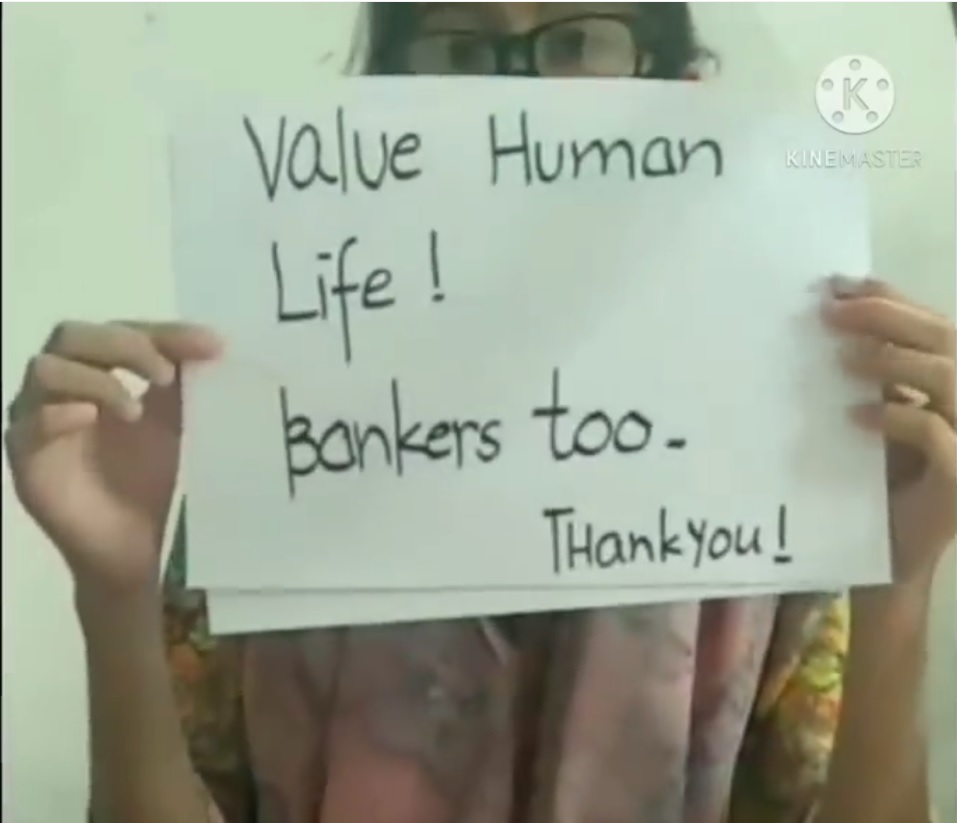
For more than a year, Tamboli used to travel from his house in Kalamb to the bank branch in Pargaon in a vehicle with his friend who worked in the post office. Before that, he used to board the bus daily at 7 am and come back from office at 7.30 pm. “It was a hard life. Several years back, my father was made a permanent staff. I hope I will get his job. The bank manager has promised that he would try to put me in,” said the 27-year-old Saber.
One demand among the trade unions is to fast-track the appointment of a family member to a post in the bank on compassionate grounds, depending on the person’s qualifications and eligibility. “In certain cases, the eligibility criteria should be relaxed,” says AIBOC general secretary Soumya Datta. “The pandemic is an uncommon situation and many families are put in deep financial stress. In a few cases, the children are left behind as both their parents have died.”
With over 150,000 Covid infections and rising, a fear psychosis is gripping the banking fraternity. The coronavirus is threatening the existing health infrastructure and making things worse by keeping patients in social isolation.
“If I turn Covid positive, what happens to me? Will I get a hospital bed? Will I have access to oxygen? If my situation deteriorates, I can’t even see my family members. What will happen to my family? These are questions that many of us are asking ourselves internally,” said a bank clerk who did not want his name to be revealed.
Most of the banks have agreed to pay an ex gratia amount of Rs 20 lakh to the deceased’s family. Some of the banks have even converted their training centres into isolation facilities for their Covid-affected employees and family members. Banking hours have also been restricted and several states have come out with their own measures. In Kerala, where the new Covid infections are fast rising, the state government has announced three working days in a week for banks from Monday. The Communist Party of India (M)-led Left Democratic Front (LDF), voted to power again, will review the decision after a week.
However, Maharashtra State Bank Employees Federation (MSBEF) general secretary Devidas Tuljapurkar feels that, against the backdrop of Covid, banks are not addressing the larger issues at the policy level. “We need to invest to change the layout inside the bank branches so that there is social distancing between the customers and the bank staff at all levels, including the counters. In America and Europe, there is a lot of research done on how to do this and make work from home effective. We are just doing patch work thinking that Covid is a temporary affair,” he said.
Banks should gear up to the ground reality and adopt policies accordingly. In metropolitan cities like Mumbai, banks should extend vehicular support as commuting to office is a big issue at the time of Covid, Tuljapurkar added.
The central government should have come out with a set of uniform guidelines restricting the line of banking services in the branches to only the most essential things during the time when Covid is spreading fast. Updating of passbooks, for instance, could be done telephonically or online, and providing Aadhar services in the branches suspended till normalcy returns.
“We are in a state of health emergency and bank branches are vulnerable places. The central government should prescribe a restricted list of banking services that can be conducted in the branches. These could be accepting deposits, cash withdrawals, clearing operations and government transactions. The other things can be done digitally or telephonically,” said All India Bank Employees’ Association (AIBEA) secretary general C H Venkatachalam.
The central government should also issue a guideline limiting the maximum attendance of staff in offices at 50%, while the minimum can vary depending on the gravity of the Covid situation in that locality, added Venkatachalam.
The only way out is to ensure vaccination for all banking staff at the earliest. Last month, the finance ministry asked state governments to treat bankers on priority basis for Covid-19 vaccination, ahead of the government opening up the programme for all adults above the age of 18 years starting 1 May. Earlier, the Parliamentary Standing Committee on Home Affairs on management of the pandemic and related issues recognised bankers as Covid-19 warriors.
Tuljapurkar blames the government for delaying the recognition of bankers as frontline workers. “It took the finance ministry almost a year to give us bankers a status like the frontline workers, despite us providing uninterrupted banking services against all odds. We should be given vaccination on a priority basis,” he said.
For a bank clerk who is blind, the Covid pandemic has thrown up a new challenge. His auto fare has doubled and there is now no help from people to assist him in crossing the congested road and making the short walk to office through the market area.
In these days of lockdown, he is fortunate that he has to work from home. “I make calls from home to loan defaulters and also to potential credit card customers,” says this son of a farmer who did not wish his name to be revealed.
In his spare time, he studies to prepare for examinations that would make him an officer, while his brother, also blind, is in his native village with his parents.
Fear of getting infected by the virus has kept people away from him when he needs help to walk outside. “The auto does not go right up to the office. I have to walk for another 10 minutes. Since it is a narrow road and congested because of a market nearby, I used to get some helping hand to guide me through. Now people are scared of Covid infection and I am left to myself,” he said.
The coronavirus has not only killed so many lives, harmed economies and destroyed livelihoods but also taken away a part of our humanity forever. Abandoning a blind person on the road is only a part of this truth.
